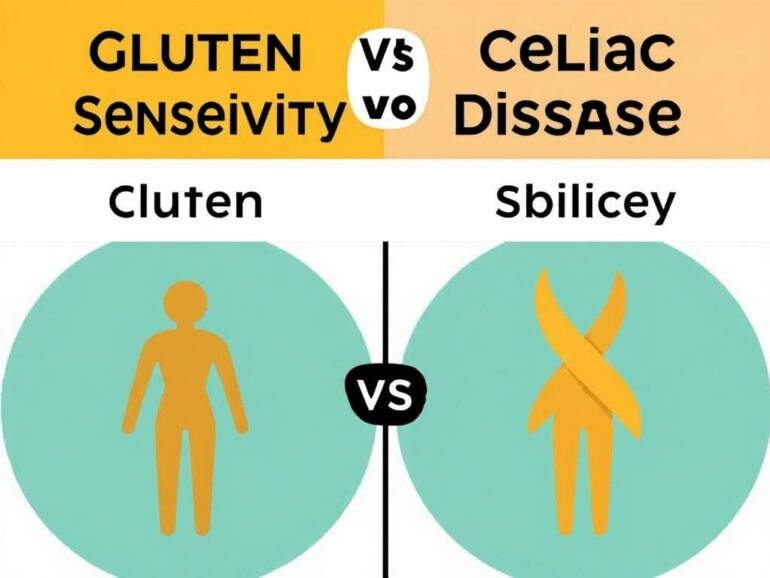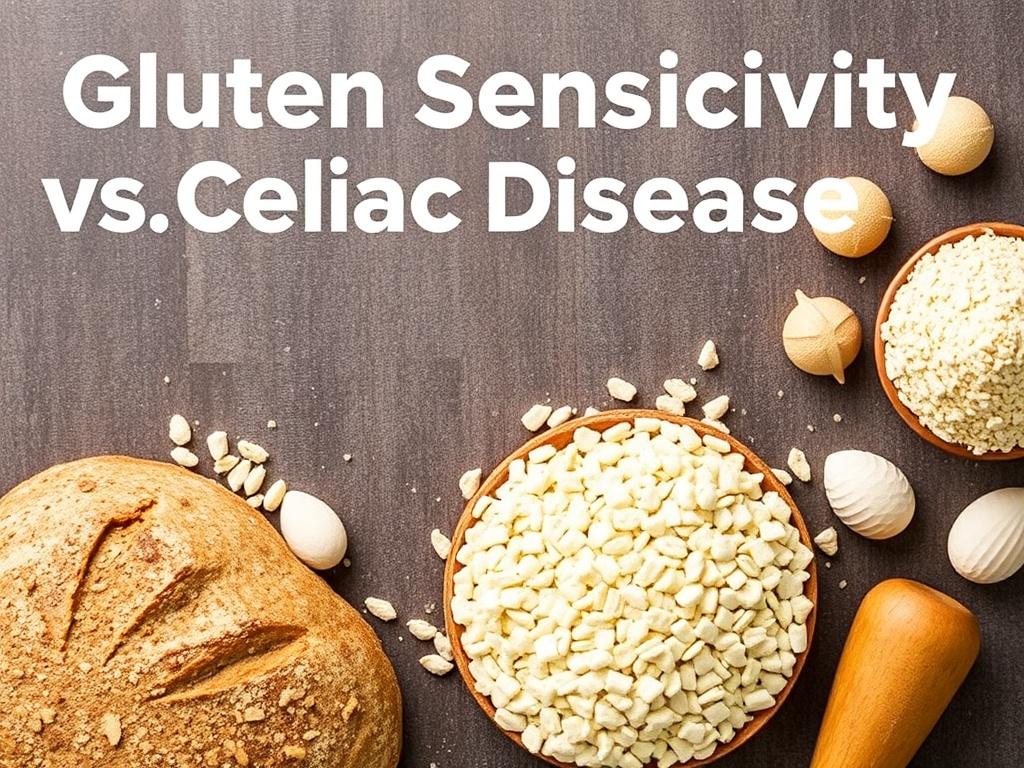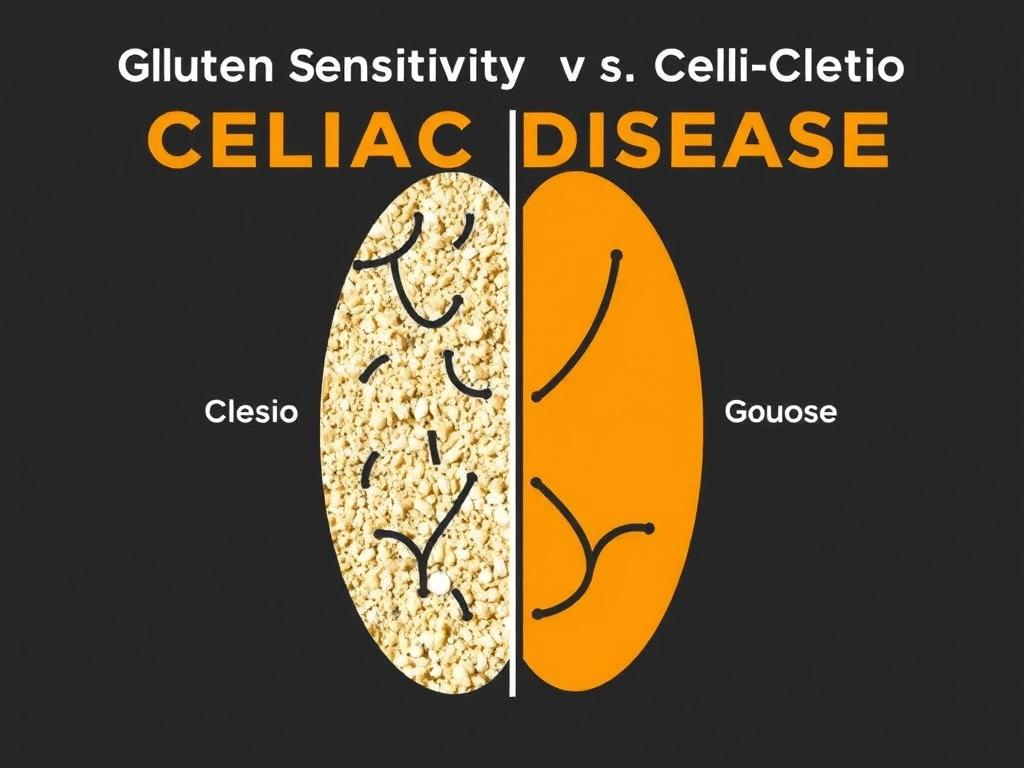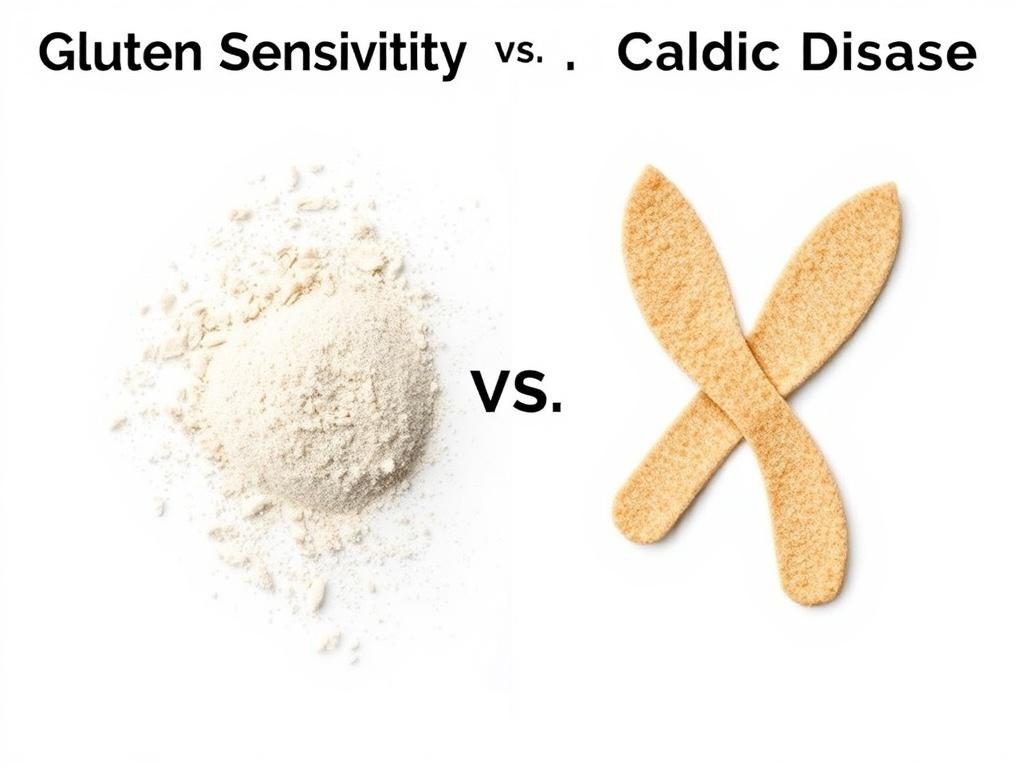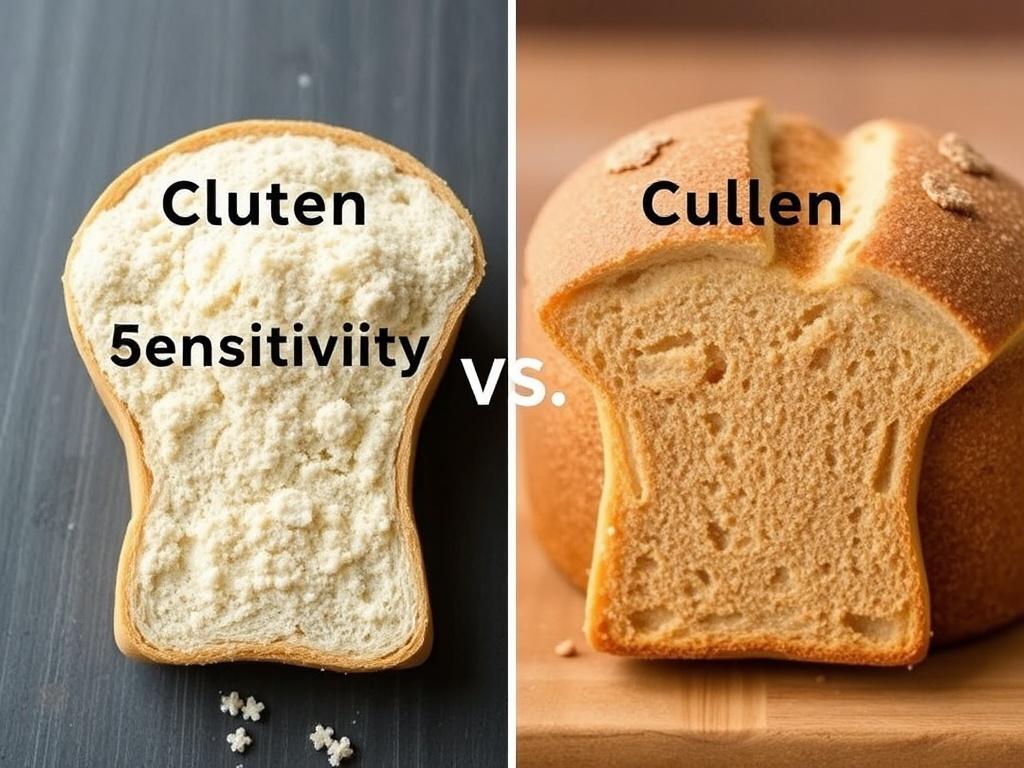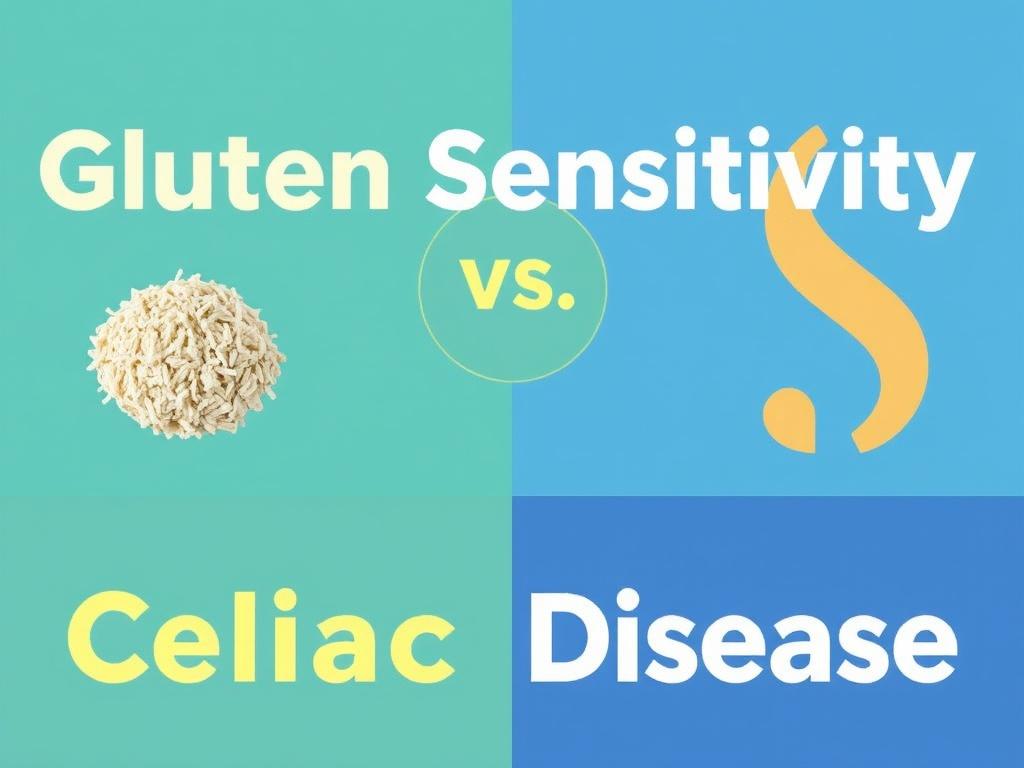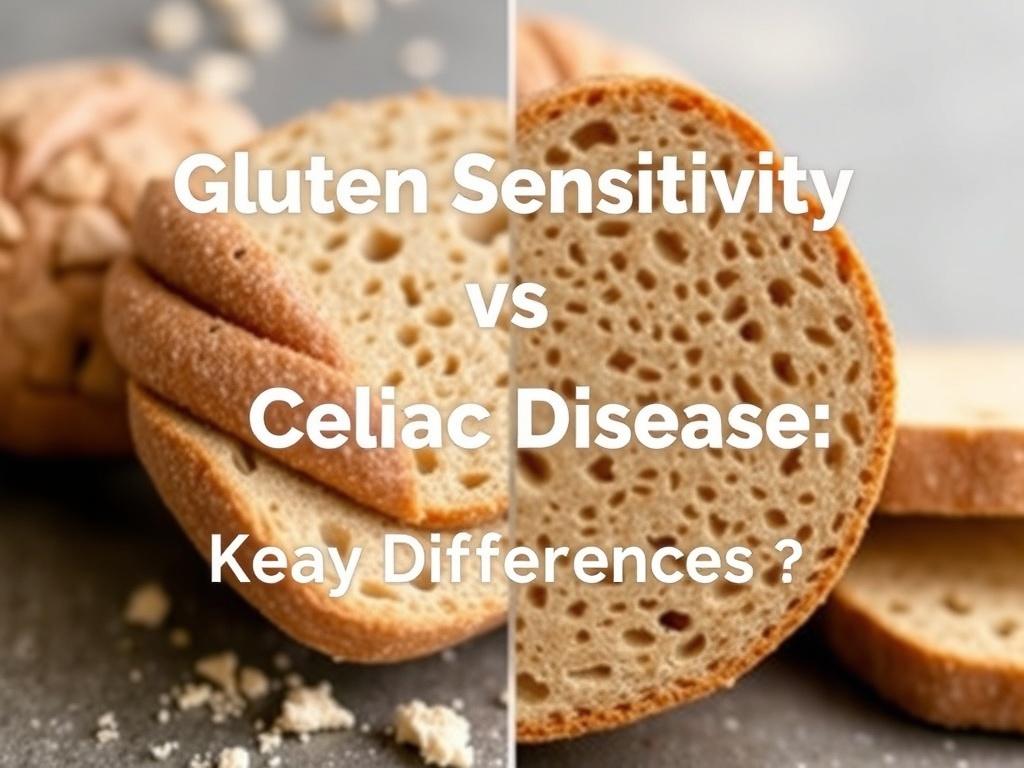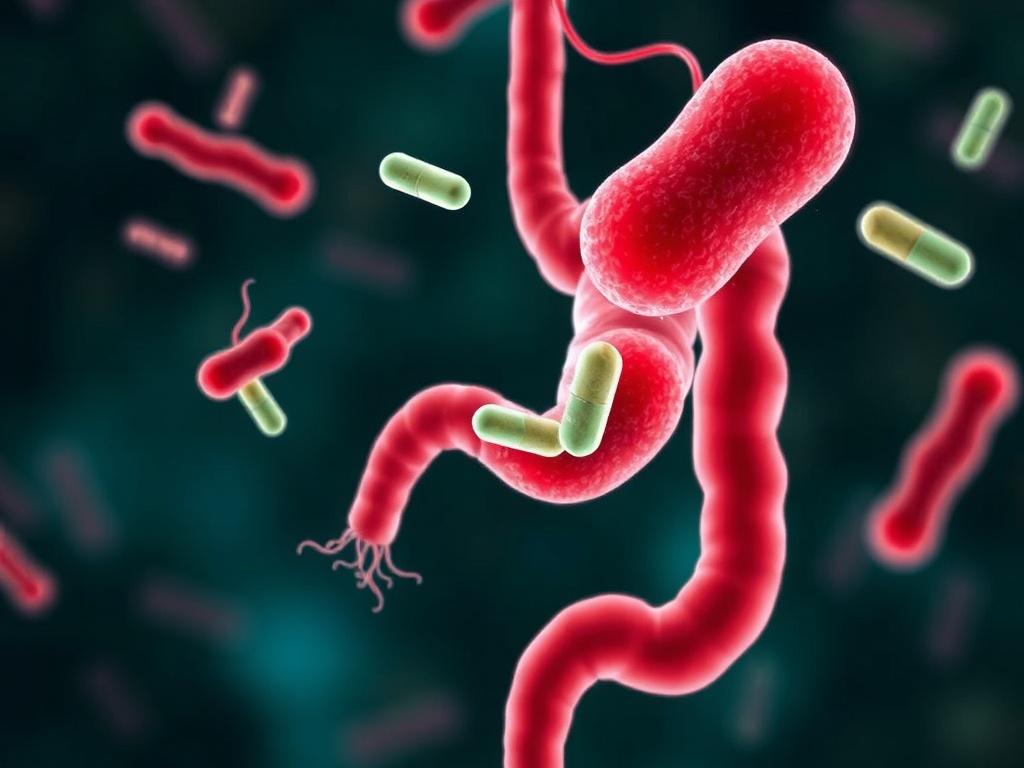When it comes to gluten and its impact on health, confusion is common. Many people use the terms «gluten sensitivity» and «celiac disease» interchangeably, but they are not the same. Understanding the difference between gluten sensitivity and celiac disease is essential, especially if you or someone you know experiences digestive discomfort or other symptoms related to gluten intake. This article dives deep into gluten sensitivity vs. celiac disease, exploring their symptoms, causes, diagnostic processes, and treatment options, so you can make informed decisions about your health.
What is Gluten and Why Does it Matter?
Gluten is a protein found in wheat, barley, rye, and other related grains. It gives dough its elasticity, helping bread rise and maintain its shape. For most people, gluten is harmless and part of a normal diet. However, for those with certain health conditions, gluten can become a trigger for a range of symptoms and complications.
Understanding how gluten affects your body is the first step in differentiating gluten sensitivity from celiac disease. These two conditions both involve reactions to gluten but operate differently within the body.
Defining Gluten Sensitivity and Celiac Disease
What is Gluten Sensitivity?
Non-celiac gluten sensitivity (NCGS) is a condition where individuals experience symptoms related to gluten consumption but do not test positive for celiac disease or wheat allergy. People with gluten sensitivity often report a variety of digestive and non-digestive symptoms that improve when gluten is removed from the diet.
What is Celiac Disease?
Celiac disease is an autoimmune disorder where the ingestion of gluten leads to damage in the small intestine. When someone with celiac disease eats gluten, their immune system attacks the lining of the small intestine, which can cause malabsorption of nutrients and a host of other health problems.
Symptoms: Where They Overlap and Where They Differ
Symptoms of both gluten sensitivity and celiac disease can be quite similar, making self-diagnosis tricky. Here’s a closer look at common symptoms seen in both conditions:
| Symptom | Gluten Sensitivity | Celiac Disease |
|---|---|---|
| Digestive Issues (bloating, gas, diarrhea) | Common | Common |
| Fatigue | Possible | Common |
| Headaches | Possible | Possible |
| Skin Rash | Rare | Common (Dermatitis Herpetiformis) |
| Joint Pain | Possible | Common |
| Weight Loss | Uncommon | Common |
| Nutrient Deficiencies | Rare | Common |
As the table shows, many symptoms overlap, but celiac disease tends to present more severe and systemic effects, including intestinal damage and nutrient malabsorption. Gluten sensitivity, meanwhile, typically involves less severe symptoms and no intestinal damage.
Causes and Underlying Mechanisms
The Immune Response in Celiac Disease
Celiac disease is an autoimmune disorder, which means the immune system mistakenly attacks the body’s tissues. In this case, eating gluten triggers the production of antibodies that damage the lining of the small intestine, specifically the villi. These tiny finger-like projections are crucial for nutrient absorption. Damage to the villi leads to poor absorption of nutrients and a wide range of complications.
What Happens in Gluten Sensitivity?
The exact cause of gluten sensitivity is still under research. Unlike celiac disease, it does not involve an autoimmune reaction or cause damage to the intestines. Researchers believe gluten sensitivity might be related to an immune response, but it’s less clear and more localized, possibly involving the innate immune system rather than the adaptive immune system seen in celiac disease.
Genetics and Risk Factors
While gluten sensitivity can occur in anyone, celiac disease has a strong genetic component. People with certain human leukocyte antigen (HLA) genes, specifically HLA-DQ2 and HLA-DQ8, are more likely to develop celiac disease. Having a family member with celiac disease also increases your risk.
Diagnosis: How Experts Differentiate Between the Two
Diagnosing gluten sensitivity vs. celiac disease can be complicated. Because symptoms overlap, relying on symptoms alone is insufficient.
Steps to Diagnose Celiac Disease
- Blood Tests: These measure specific antibodies, such as anti-tissue transglutaminase (tTG) and anti-endomysial antibodies (EMA). High antibody levels suggest celiac disease.
- Genetic Testing: A test for HLA-DQ2 or HLA-DQ8 genes can support diagnosis but is not definitive.
- Endoscopy and Biopsy: A definitive diagnosis usually requires a biopsy of the small intestine via endoscopy to look for villous atrophy and intestinal damage.
Diagnosing Gluten Sensitivity
There is no specific test for gluten sensitivity. It is usually diagnosed after celiac disease and wheat allergy have been ruled out. The process often looks like this:
- Negative blood tests and no intestinal damage on biopsy.
- Improvement of symptoms on a gluten-free diet.
- Return of symptoms when gluten is reintroduced (gluten challenge).
It is important to conduct these tests before starting a gluten-free diet. Otherwise, diagnostic tests might produce false negatives.
Potential Health Risks and Complications
Understanding the seriousness of each condition is important when deciding on treatment.
Complications of Untreated Celiac Disease
If celiac disease goes untreated, damage to the intestines continues, leading to:
- Malnutrition—including deficiencies in iron, calcium, vitamin D, and B vitamins.
- Anemia from iron deficiency.
- Osteoporosis due to poor calcium absorption.
- Increased risk of intestinal lymphoma and other cancers.
- Neurological issues like neuropathy and ataxia.
These complications highlight why a proper diagnosis and strict avoidance of gluten are critical for those with celiac disease.
Health Concerns Linked to Gluten Sensitivity
While gluten sensitivity is generally less severe, it can still impair quality of life due to unpleasant symptoms. Currently, there is no evidence that gluten sensitivity leads to long-term intestinal damage or serious complications like celiac disease.
Treatment and Management Strategies
Whether you have gluten sensitivity or celiac disease, managing your condition primarily involves dietary changes.
Gluten-Free Diet: The Common Denominator
Both conditions require avoiding gluten-containing foods, but the strictness and reasons behind the diet differ.
| Condition | Gluten-Free Diet Recommendations |
|---|---|
| Celiac Disease | Strict lifelong gluten-free diet with no exceptions to prevent intestinal damage and complications. |
| Gluten Sensitivity | Gluten avoidance recommended to reduce symptoms. Some individuals may tolerate small amounts. |
Monitoring and Follow-Up
For celiac disease, ongoing medical follow-up is important to monitor nutrient levels, check symptom resolution, and prevent complications. People with gluten sensitivity might not require as frequent medical evaluations but should still monitor their symptoms and dietary adherence.
Common Myths and Misconceptions
The conversation around gluten has spawned many myths that can be confusing. Let’s clear up a few:
- Gluten-free diets are automatically healthier. Not necessarily. Gluten-free products can be just as processed and high in sugars or fats as regular products.
- You can self-diagnose gluten sensitivity at home. It’s important to seek professional advice and testing because many conditions have similar symptoms.
- Gluten sensitivity and celiac disease are the same. They are distinct conditions with different underlying mechanisms and health risks.
Gluten Sensitivity vs. Celiac Disease: A Quick Comparison
| Feature | Gluten Sensitivity | Celiac Disease |
|---|---|---|
| Immune Reaction Type | Non-autoimmune, unclear immune pathway | Autoimmune |
| Intestinal Damage | No | Yes |
| Diagnostic Tests | Negative blood/biopsy; diagnosis of exclusion | Positive blood tests and biopsy |
| Symptoms | Varied, usually milder | Varied, often more severe |
| Treatment | Dietary avoidance of gluten varies | Strict lifelong gluten-free diet |
Living Well with Gluten Sensitivity or Celiac Disease
Navigating either gluten sensitivity or celiac disease can seem daunting at first. However, with the right knowledge and support, maintaining a gluten-free lifestyle becomes much easier. Learning to read labels, cooking at home, and finding gluten-free alternatives can open a world of delicious and safe food options. Connecting with support groups or healthcare providers skilled in managing these conditions can provide encouragement and practical advice.
Helpful Tips for Managing Your Diet
- Always check ingredient labels carefully for hidden gluten.
- Be cautious when eating out and communicate your dietary needs clearly.
- Incorporate naturally gluten-free whole foods like fruits, vegetables, legumes, and lean proteins.
- Consult a dietitian knowledgeable about gluten-related disorders.
The Future of Gluten-Related Disorders
As research advances, our understanding of gluten sensitivity and celiac disease continues to evolve. Scientists are exploring new diagnostic tools, potential treatments beyond diet, and even therapies that might one day allow people with celiac disease to tolerate gluten safely.
Conclusion
Gluten sensitivity and celiac disease are distinct but related conditions that involve an adverse response to gluten. While they share some symptoms, celiac disease is an autoimmune disorder marked by serious intestinal damage and long-term health risks, requiring a strict lifelong gluten-free diet. Gluten sensitivity, on the other hand, tends to cause less severe symptoms and no lasting intestinal injury, but it still significantly impacts quality of life and benefits from gluten avoidance. Understanding the differences between these two disorders empowers individuals to seek proper diagnosis and effective treatment. Whether you suspect gluten sensitivity or have been diagnosed with celiac disease, embracing a thoughtful gluten-free lifestyle and consulting healthcare professionals are vital steps toward feeling better and maintaining optimal health.
Читайте далее: